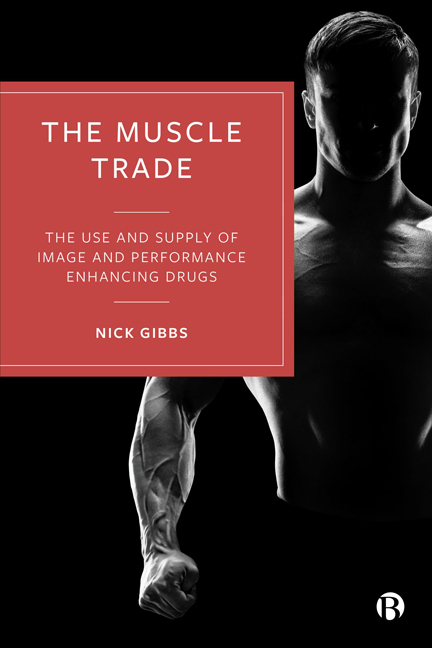Book contents
12 - Conclusion
Published online by Cambridge University Press: 28 March 2024
Summary
This final chapter will summarize this book’s findings and answer the fundamental questions of why my sample used IPEDs, and how they engaged with the market. Though these are rather lofty aims for a single study, it is hoped that what has been presented in this book will go some way towards shedding light on these key questions and adding some much-needed theoretical nuance to this burgeoning area of study.
Why use IPEDs?
A primary focus of this monograph has been to address the question of what motivates IPED users to consume substances that are often accompanied by a panoply of harms, expenses, and ascetic protocols. Aiming to move beyond basic accounts of aesthetic motivation, sporting attainment, and deficient body image, this book has, to paraphrase Winlow (2019), examined what lies beneath my sample’s compulsion to chemically enhance their physiques. I have argued that the fundamental drive to consume IPEDs lies within the Lacanian notion of desire, wherein the subject is psychically compelled to prolong a state of dissatisfaction and lack by perpetually striving for, but never attaining, the objet petit a (Lacan, 1958; McGowan, 2016). For my sample, this relentless search for the lost object is manifested in fitness and muscular growth as a result of the inherently unending nature of bodywork (Bauman, 2012). As such, the physical form becomes the objet petit a and corporeal improvement is the unattainable promise that the subject can aim for. Therefore, the orthodox accounts of bodily dissatisfaction fuelling IPED consumption ought to be reinterpreted in light of the reality that the subject fundamentally seeks to perpetuate a state of bodily desire. By extension, IPEDs provide users with a means of erecting further barriers to their corporeal satisfaction, so that the objet petit a remains tantalizingly out of grasp. From this, we can better understand the acts of bodily jouissance that accompany IPED consumption as well as the addictive nature of substances such as AAS, whose illusory promise draws the subject to continually seek chemical enhancement, potentially to the point of abuse.
I have also sought to ground analysis in the meso and macro politico-economic contexts of this work, and therefore, sitting atop this psychic draw to bodily enhancement, I contend that a host of external factors have contributed to the recent swell in IPED consumption.
- Type
- Chapter
- Information
- The Muscle TradeThe Use and Supply of Image and Performance Enhancing Drugs, pp. 150 - 156Publisher: Bristol University PressPrint publication year: 2023



